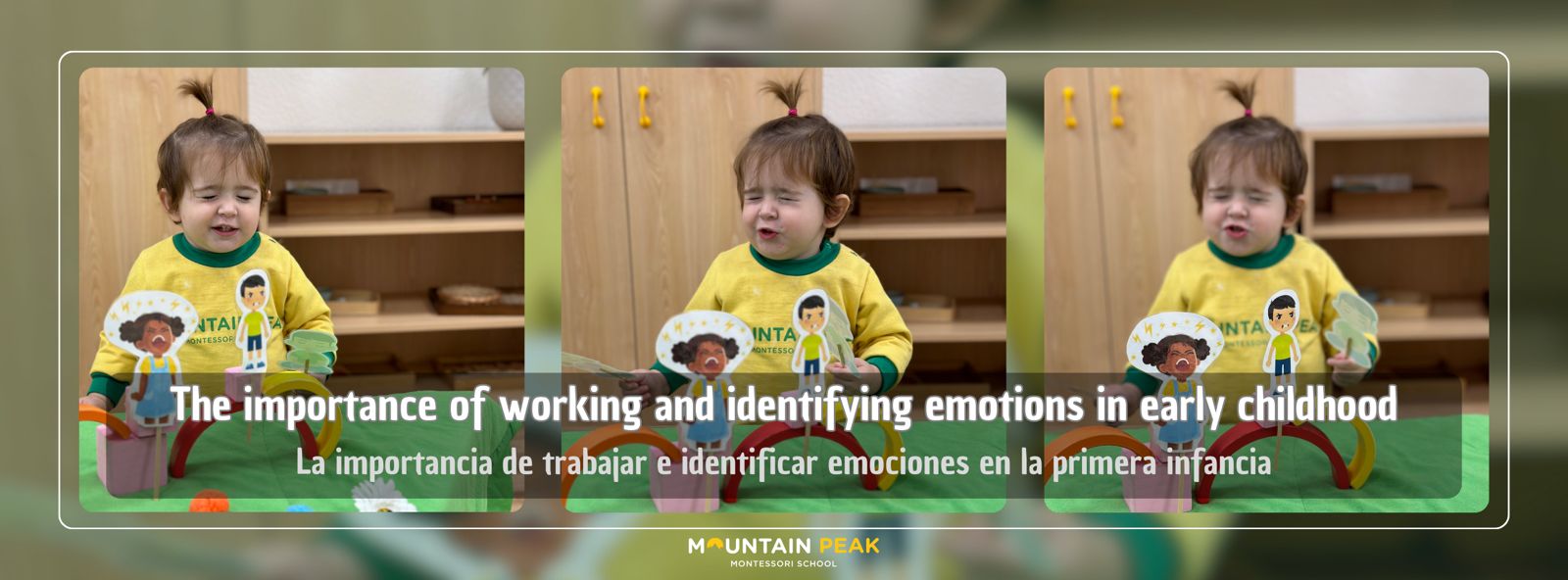
The importance of working on and identifying emotions and feelings in early childhood
At Mountain Peak Montessori School, we understand that education is not limited to cognitive and academic skills. It is a comprehensive process that encompasses the emotional, social, and moral development of the child. One of the most crucial aspects of this approach is working with emotions and feelings from an early age. But why is it so important to identify and manage emotions in early childhood?
During the first six years of life, children experience rapid brain and emotional development. This period is essential for establishing the foundations of self-control, empathy, and resilience.
Identifying emotions: A pathway to autonomy
One of the cornerstones of Montessori education is promoting independence and self-awareness in children. Teaching them to identify their emotions contributes to this sense of autonomy. For example, rather than reacting impulsively in the face of conflict or frustration, a child who has learned to identify their emotions can articulate what they feel: “I am angry because I cannot use the toy” or “I feel sad because my friend does not want to play with me.”
This process of verbalising and recognising emotions allows children to better manage their responses and seek appropriate solutions, fostering a more harmonious and collaborative school environment.
Montessori Tools for Emotional Work
Montessori activities are designed so that children can explore the world around them while learning to manage their feelings. Some of the tools and activities that promote emotional identification include:
Conversation circles: Spaces where children can talk about how they feel, guided by an adult who demonstrates empathy and understanding.
Emotion card games: Illustrations depicting various facial expressions for children to associate with emotions such as joy, sadness, or surprise.
Stories and tales: Narratives addressing common emotional situations, encouraging emotional identification and dialogue.
Long-Term Benefits
Early learning in emotional identification and management has a lasting impact. Children who develop these skills tend to:
Build healthier relationships.
Demonstrate greater conflict resolution capabilities.
Be more empathetic and considerate of others.
Face frustration and adversity with greater resilience.
Emotional education in childhood is also linked to improved academic performance and a lower incidence of behavioural issues in later stages.
Creating an environment where children feel comfortable recognising and discussing their emotions is an essential step towards forming balanced and emotionally intelligent adults. At Mountain Peak Montessori School, we work every day to ensure our young learners know themselves, develop empathy, and become capable of building a better world, starting with themselves.